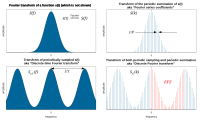
Photo from wikipedia
The deficiency number of one hand, i.e., the number of tiles needed to change in order to win, is an important factor in the game Mahjong, and plays a significant… Click to show full abstract
The deficiency number of one hand, i.e., the number of tiles needed to change in order to win, is an important factor in the game Mahjong, and plays a significant role in the development of artificial intelligence (AI) for Mahjong. However, it is often difficult to compute due to the large amount of possible combinations of tiles. In this paper, a novel discrete differential evolution (DE) algorithm is presented to calculate the deficiency number of the tiles. In detail, to decrease the difficulty of computing the deficiency number, some pretreatment mechanisms are first put forward to convert it into a simple combinatorial optimization problem with varying variables by changing its search space. Subsequently, by means of the superior framework of DE, a novel discrete DE algorithm is specially developed for the simplified problem through devising proper initialization, a mapping solution method, a repairing solution technique, a fitness evaluation approach, and mutation and crossover operations. Finally, several experiments are designed and conducted to evaluate the performance of the proposed algorithm by comparing it with the tree search algorithm and three other kinds of metaheuristic methods on a large number of various test cases. Experimental results indicate that the proposed algorithm is efficient and promising.
Journal Title: Mathematics
Year Published: 2023
Link to full text (if available)
Share on Social Media: Sign Up to like & get
recommendations!